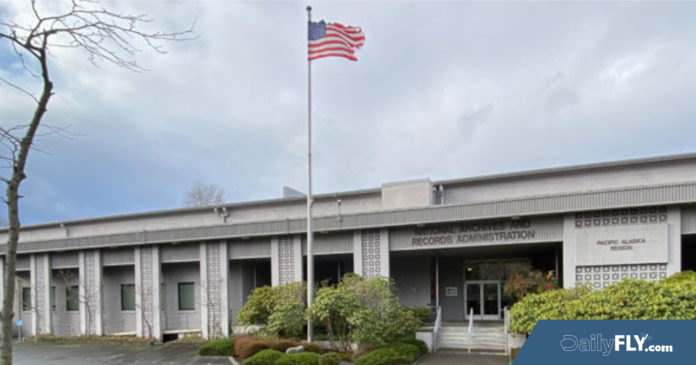SEATTLE — Attorney General Bob Ferguson announced today that his office filed a lawsuit against the federal government for illegally proceeding with the sale of the National Archives and Records Administration’s (NARA) building in Seattle. The government plans to ship the National Archives building’s irreplaceable, un-digitized records more than a thousand miles away to archive centers in Kansas City, Missouri and Riverside, California. This will effectively eliminate public access to the records. Twenty-nine federally recognized tribes, Alaskan tribal entities, and tribal communities from Washington, Oregon, Idaho and Alaska, as well as nine community organizations, historical preservation societies and museums and the state of Oregon joined Ferguson’s lawsuit.
The National Archives building in Seattle hosts exclusive and un-digitized tribal and treaty records, as well as Chinese Exclusion Act case files and records regarding the internment of Japanese Americans during World War II. The records are invaluable resources for researchers, historians and individuals seeking information about their family history or heritage. For instance, tribal members use federal archive records to establish tribal membership, demonstrate and enforce tribal rights to fishing and other activities, trace their lineage and ancestry and access native school records. According NARA’s Seattle director, only “.001% of the facility’s 56,000 cubic feet of records are digitized and available online.”
The lawsuit, filed in U.S. District Court for the Western District of Washington, asserts the sale violates the conditions Congress placed on agencies’ ability to sell federal properties on an expedited basis and fails to appropriately account for the records’ importance to the Pacific Northwest region. Further, the federal government refused to consult or cooperate with local stakeholders, including tribal governments, in making the decision to sell the property.
Talmage Hocker, a Kentucky commercial real estate developer appointed to the Public Buildings Reform Board (PBRB) by President Donald Trump, said in a December 2020 interview with the L.A. Times that his agency’s recommendation to sell the property would allow it to “become a part of the community, as opposed to what it is today.”
“My late father was a regular at the National Archives – he, like so many Washingtonians, loved the place,” Ferguson said. “He would have been shocked at the manner in which the federal government has conducted this illegal sale — ignoring the law, hiding the ball, and refusing to listen to the community. To be blunt, these federal agencies don’t give a damn about their legal obligations or what these documents mean to our region. Consequently, this lawsuit is our only recourse to compel the government to follow the law and respect the fact that these irreplaceable records contain the DNA of our region.”
“The Archives are critical partners in the conservation of our community’s history,” said Connie So, president of OCA Asian Pacific Advocates – Greater Seattle Chapter. “Most Chinese Americans left few records of their lives and history prior to 1950, making the Archive’s treasure trove of files related to the Chinese Exclusion Act all the more precious. Once, when Seattle hosted the Association for Asian American Studies conference, we made a special trip to the Archives. People marveled at the fact that they could find information on relatives that they thought were long-lost. People shared poignant stories, especially when they discovered a photo of a family member.”
“The word ‘archives,’ from the view of law firms, businesses and courts, tends to conjure an image of a records storage facility for ‘dead files,’” said Tallis King George, a Puyallup tribal attorney. “I view the National Archives at Seattle as a vibrant, special collection library… A visit to the National Archives at Seattle, for native people whose ancestral historical and cultural records are housed there, fills a deep cultural yearning to know, honor and understand the lives and sacrifices of their ancestors.”
Twenty-nine tribes, the State of Oregon, and 9 community organizations are partnering with Ferguson’s office in bringing the case. The Nez Perce Tribe is included in that coalition.
The federal government did not consult with Northwest tribal leaders before deciding to move these significant pieces of tribal history thousands of miles away from the Northwest, depriving local tribes of access to these critical historical documents.
51
|
|
Credit: Source link































